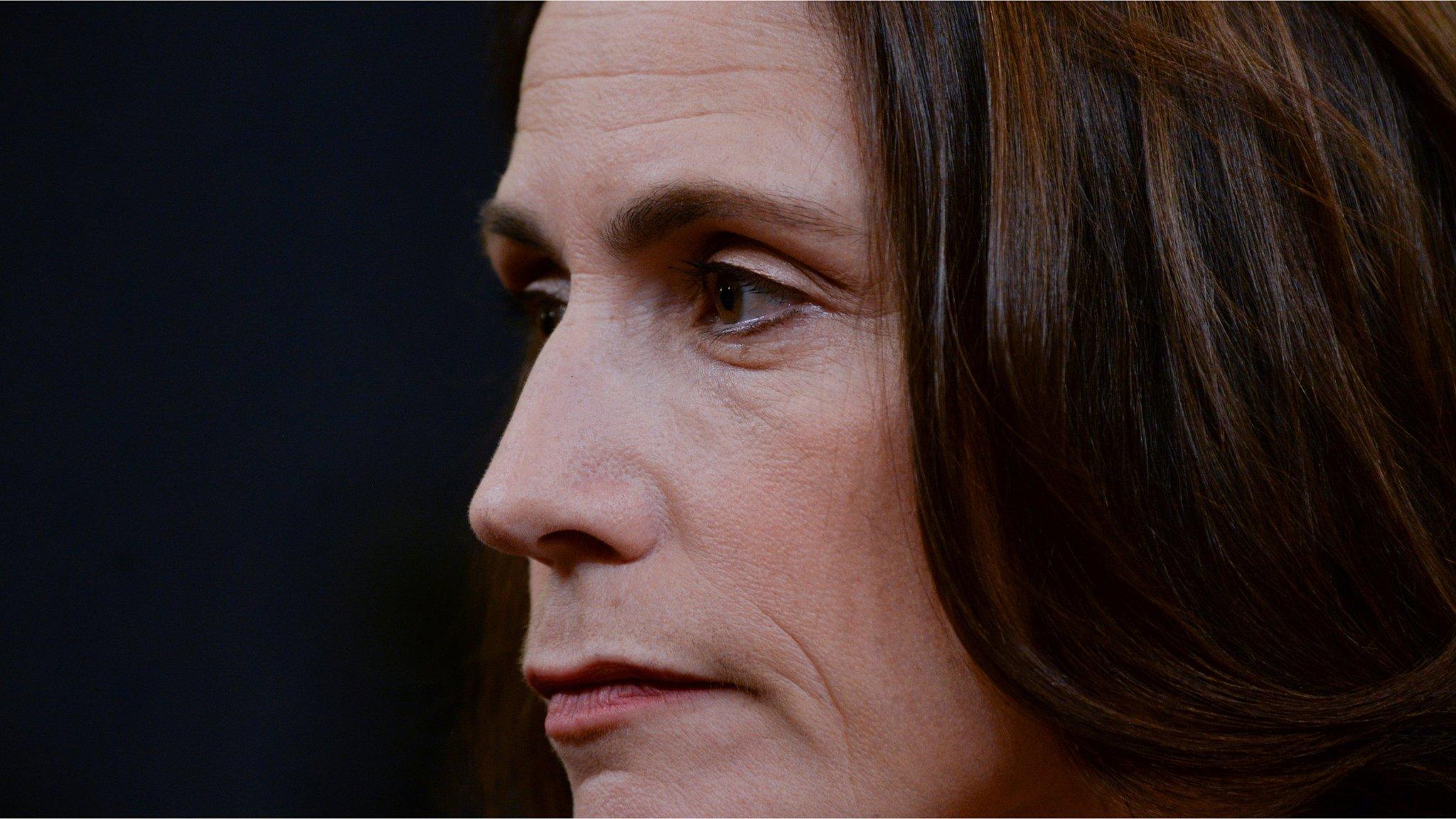Howay The Lasses folk band celebrating female pioneers
- Published
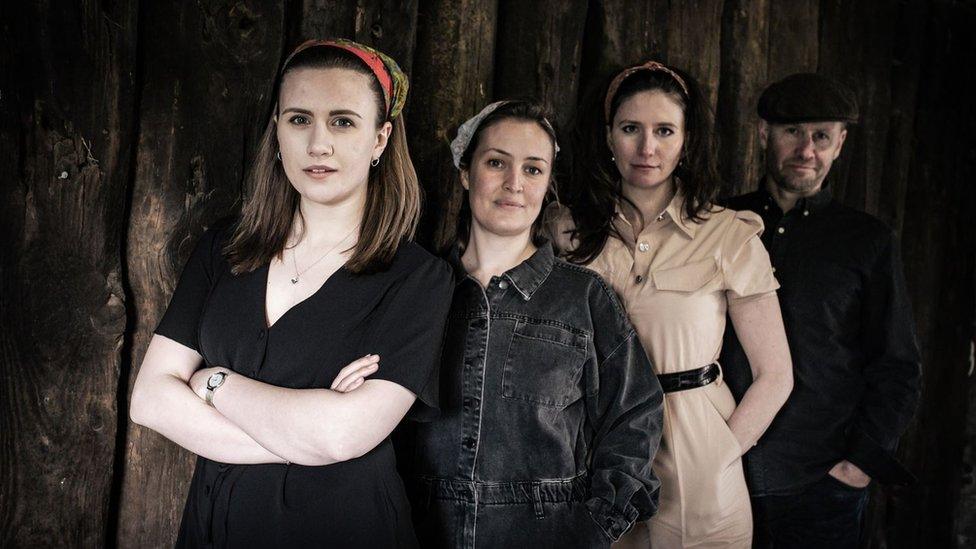
Howay The Lasses was formed during the pandemic to mark and celebrate women in north-east England
A folk band is bringing to life the hidden stories of pioneering women from north-east England.
Howay the Lasses, formed during the Coronavirus lockdown in 2021, seeks to champion the stories of women that history may have forgotten.
Their latest single is about Mary Astell, born in 1666 in Newcastle, who published works arguing women were just as deserving of an education as men.
Singer Bronwen Davies-Jones said her story still resonates in today's world.
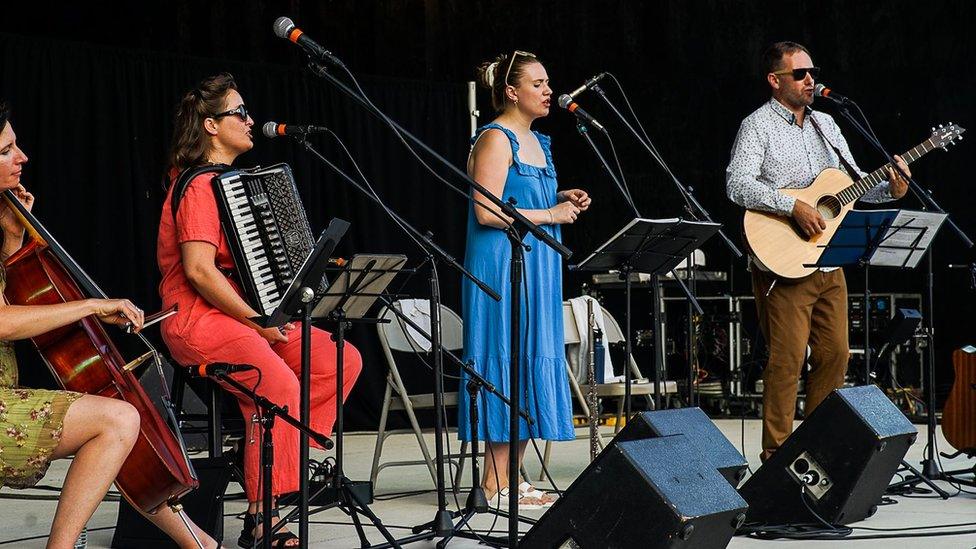
The song about Mary Astell will feature during the band's October tour
Davies-Jones said: "Mary Astell's story gripped us. She was born in the 17th century but the same attitudes are still around today."
Mary Astell's anonymously published book from 1694, A Serious Proposal to the Ladies, is considered to be an early feminist work.
It makes arguments about women's equality two centuries before the feminist political movement really took shape.
Six years later she published Some Reflections on Marriage, in which she argued the education of women contributed to a happier marriage.
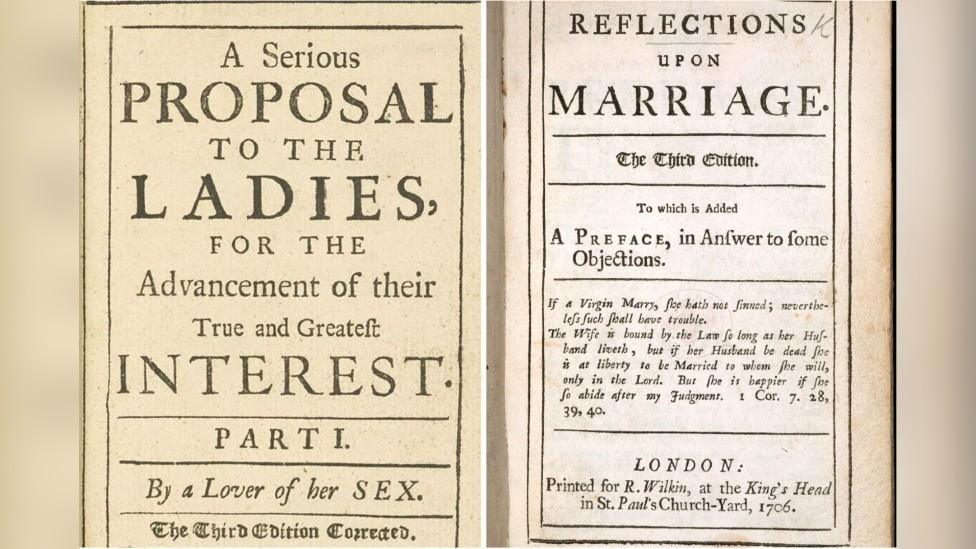
Mary Astell's writing challenged the leading thinkers of the day
Davies-Jones added: "Her story resonated with me.
"I did drama at university and the amount of creators we learnt about were all men, there weren't many female movement makers."
The 25-year-old singer works with her father Gareth on the songs and arrangements, along with fellow vocalist, accordionist and pianist Annie Ball and cellist Katie Tertell.
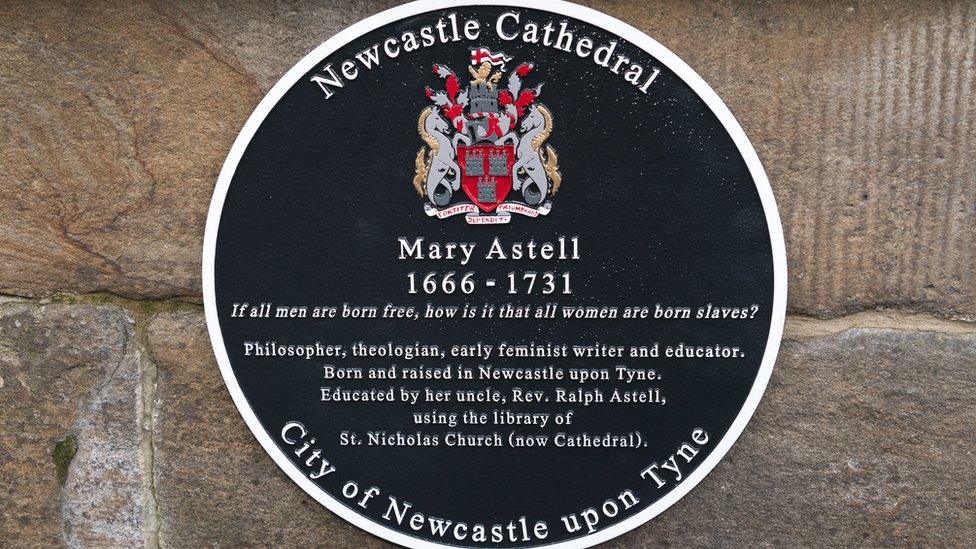
A commemorative plaque dedicated to Mary Astell sits outside Newcastle Cathedral where her uncle was a curate
Gareth Davies-Jones said: "It's not that Mary Astell's ideas were radical, it's more the fact that at the time she was kicking back at a society which was not allowing women a voice.
"She was formidable and determined and we chose to write a chorus based on the words on her plaque in Newcastle which says: 'If all men are born free, how is it that all women are born slaves?'
"That's something that is still real and happening in the world. We're not championing the stories, but we are telling them."
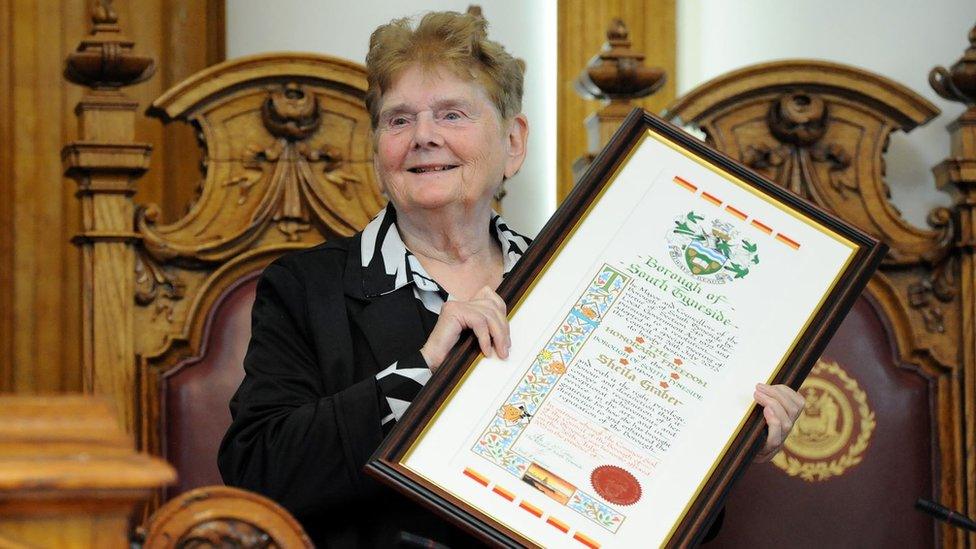
South Shields-based animator Sheila Graber has been another inspiration for the band
The band's first inspiration was South Shields animator Sheila Graber.
They took their name from one of her 1970s works showing a woman shackled to a kitchen sink and following her route through history, starting in the Stone Age and moving to 20th century 'freedom'.
Ms Graber was recently awarded Freedom of South Tyneside for her work, which includes the 1980s children's TV series Paddington.
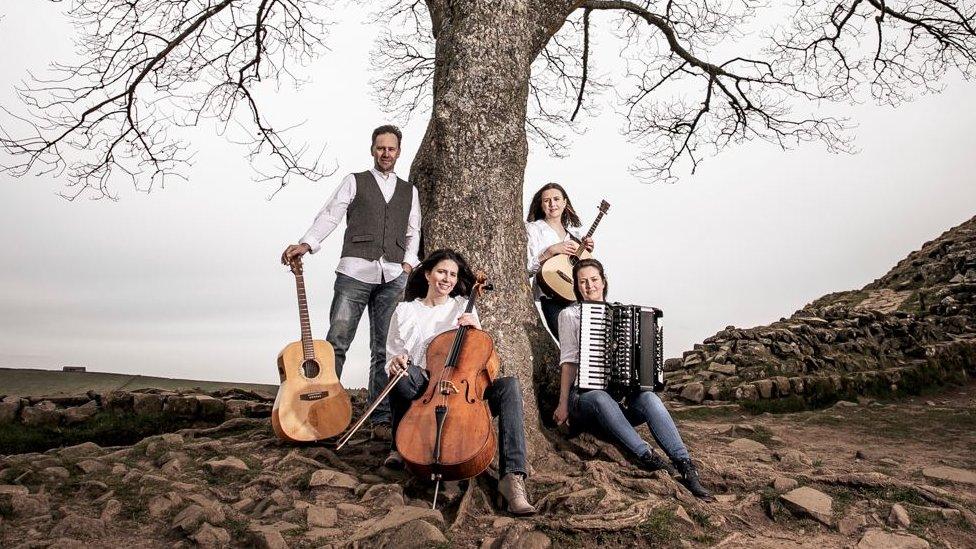
The band is inspired by researching and performing about unsung women
Fiona Hill is another woman the Tyne-Valley band has created a song about.
Recently appointed Durham University chancellor, Dr Hill grew up in Bishop Auckland and, after studying at Harvard University, became a national security adviser at the White House.
Bronwen Davies-Jones said: "I identify with Fiona Hill. She was bullied for her accent and didn't get into Oxford university, but she went onto Harvard and worked at the heart of US government.
"It just shows you can get there if you work hard, it doesn't matter what you sound like."
Other stories celebrated through music include mathematician Janet Taylor, born in Wolsingham, County Durham in 1804. She was the first woman to patent an astronomical instrument.
Another inspiration is engineer Rachel Parsons, who lived on Tyneside and became an advocate for the rights of women.
The band is performing in October, including a show at The Glasshouse, Gateshead.

Follow BBC North East & Cumbria on Twitter, external, Facebook, external and Instagram, external. Send your story ideas to northeastandcumbria@bbc.co.uk, external.
- Published9 March 2023
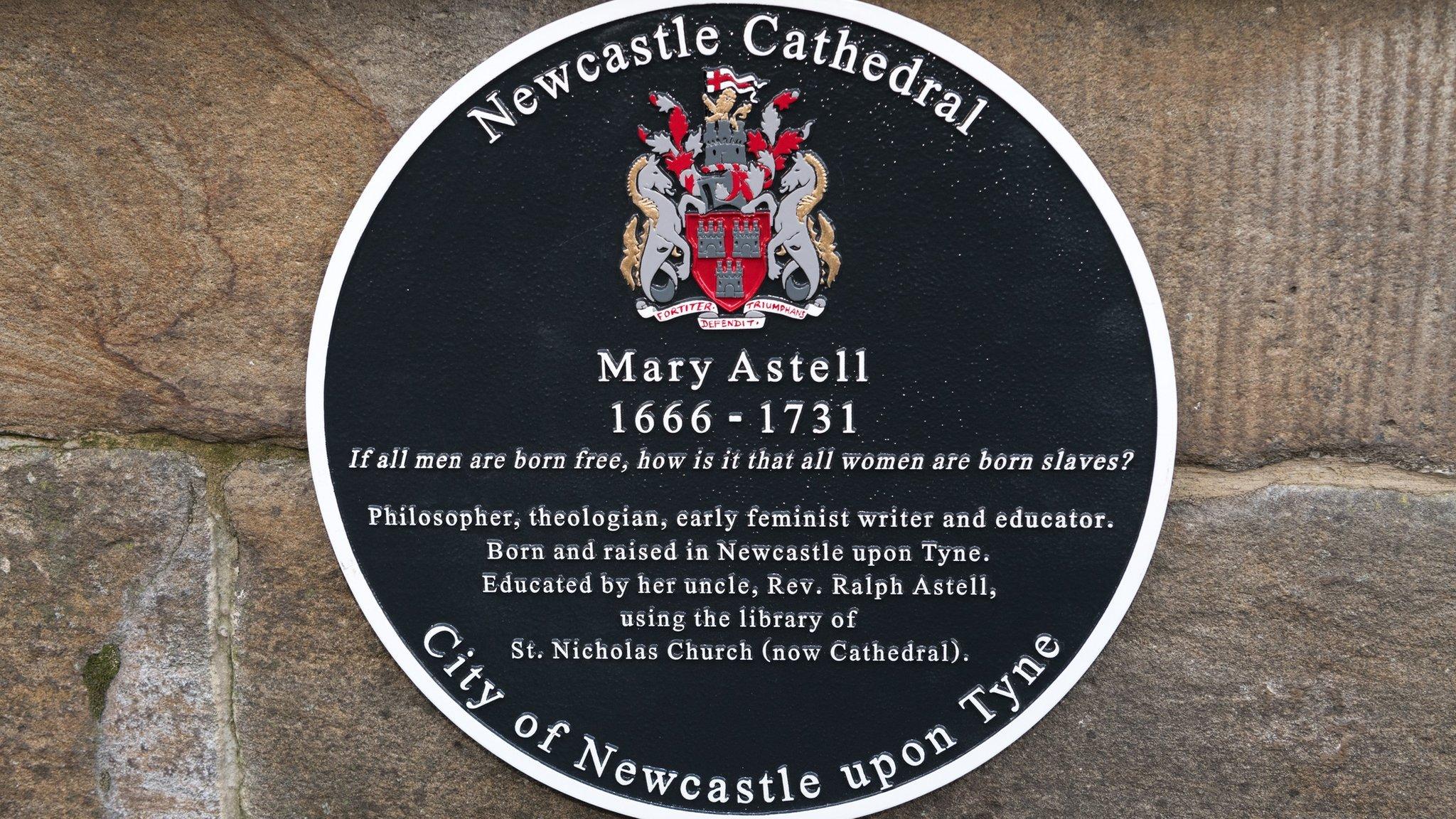
- Published16 September 2022

- Published22 November 2019
